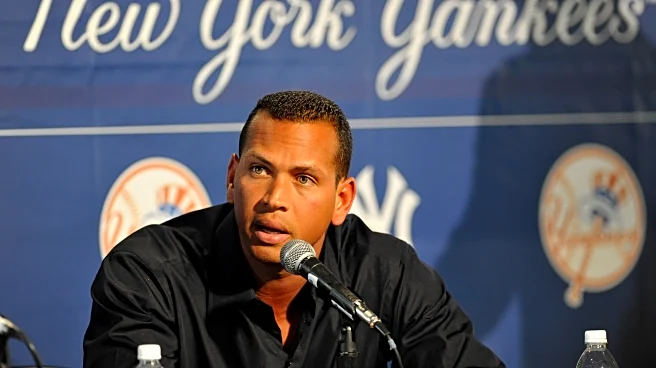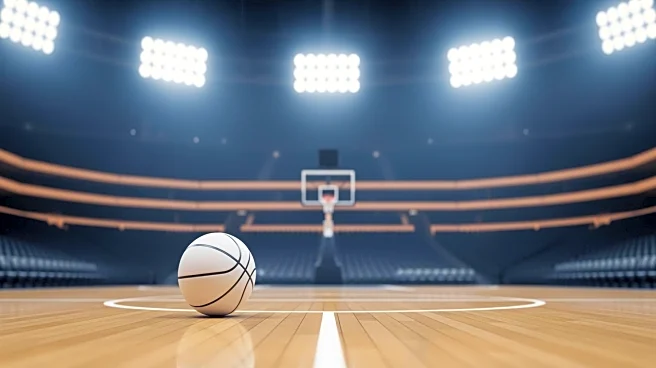Thursday marked the release of the final installment of HBO’s documentary series Alex vs. ARod. The three part series, directed by Gotham Chopra and Erik LeDrew, follows the life and career of Alex Rodriguez,
from his phenomenal start in Seattle, to his success on the field and at the bank with Texas, and the tremendous highs and lows of his time with the New York Yankees. Rodriguez’s career and life is one of the more complicated in recent baseball memory, reaching peaks and valleys that almost no other player has, and this documentary finds humanity in its exploration of that journey.
The three-part series, spanning well over three hours in total, tells the story of Alex Rodriguez’s career, which began as MLB’s no. 1 overall pick in 1993 with Seattle, and concluded over two decades later with New York. As far as talent and on-field production go, A-Rod was among the best to ever grace a baseball field, but his many mistakes and actions as a self-described narcissist muddied his reputation nearly beyond repair. This all came off of a disjointed childhood that saw his father abandon his family when Alex was nine, and an early introduction to adulthood (and hard-to-comprehend amounts of money). Reconciling the sensitive, emotional, often insecure Alex with the enigmatic, larger than life “A-Rod” is the framework of this docu-series, and I’d argue it works quite well.
Alex vs. ARod is told almost entirely through a series of personal, vulnerable, and seemingly authentic interviews with Rodriguez (and others, like his brother Joe Dunand, his first manager Lou Piniella, Derek Jeter, Ken Griffey Jr., and more). The three-time MVP is older, and seems to be more grounded, offering plenty of insight to his experience, and the toll it often took on it him and the people around him. Beginning with an optimistic look at his time in Seattle, which began at the ripe age of 18, this documentary covers his enormous heights, which led to multiple record-breaking nine-figure contracts. It dives into his three MVP awards, and his 14-year stretch as one of the best players in the history of the game, as well as the therapy that he’s open about undergoing in addressing his own issues. He would, of course, not be the A-Rod we know without the drama, the suspensions, the self-destruction, and ultimately, the revival.
More than anything else, I found Alex vs ARod to be a well-made reminder that the people we watch on this stage every day are just that — people. That level of success, fame, and adoration can clearly get to an athlete’s head, but it is important to remember that even someone of Rodriguez’s stature feels many of the same things that you or I do — the good and the bad. It can be difficult to feel sympathy for someone as successful as A-Rod, particularly in his situation, given how he often projected himself throughout his career. I’m not sure this documentary offers a perfect answer to that dilemma, but by the end, I felt just that for someone who had enormous good fortune, but is also a complex, sensitive, and often flawed person.
Several times throughout the documentary, Rodriguez was called a “Shakespearean figure”, and while that term can be overused, it might be fitting in this case. He came up with plenty working against him, and was thrust into stardom and enormous financial gain at an age most people are still in high school. He built that into one of the best careers in baseball history, nearly tore it all down, and built himself back up before eventually digging himself a much deeper and damning hole. In the end, he climbed out once again, and finished his career having shed many of the demons that chased him for the previous two decades.
Despite his many shortcomings and flaws, Rodriguez was indeed one of the game’s true greats, and seems to be on a much healthier personal path post-retirement. He seems to be a good father, is more in touch with himself and reality, and is clearly continuing to make his A-Rod sized impact on the sports world. A major theme in this documentary is that even when fully acknowledging a person’s flaws, it can be only fair to take account of the comeback too — a worthwhile thought in almost any situation.
As someone who grew up with the A-Rod Yankees and fell in love with the sport at that time, who watched almost every game of the 2009 season, and was enthralled by his comeback in 2015, Alex vs ARod was well worth the watch. In part I may just be a sucker for a well-crafted baseball documentary, but I also think it shines a light on one of my favorite aspects of sports — despite the money and fame and stats and status, these are just people doing a profoundly weird job, flaws and feelings and all.










